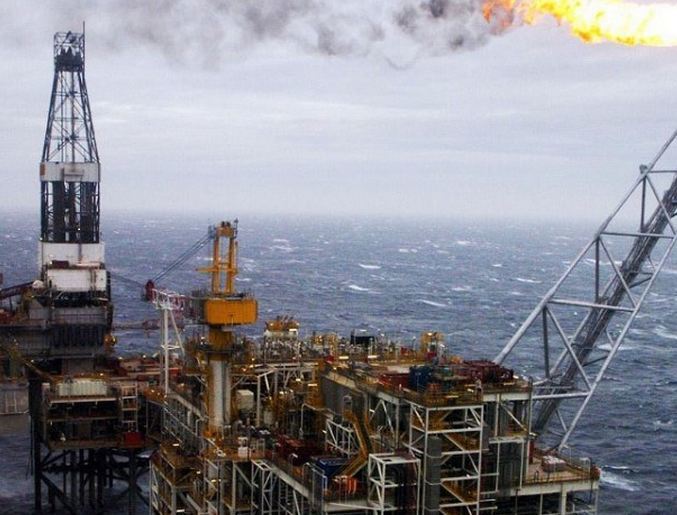
For the world’s largest oil explorers, it’s a time of transition.
Crude prices are on the rise as OPEC curbs production for a second year. New efficiencies have dropped the cost of drilling in America’s fertile shale basins, pushing U.S. drillers to record output. Investors are insisting on higher returns. And companies are dealing with changing U.S. tax rules.
The first hints showing how Big Oil — an elite clique of companies so massive their combined annual sales dwarfs the economies of all but 15 of the world’s nations — is preparing to deal with these changes will come in fourth-quarter earnings reports starting this week. First up, Royal Dutch Shell Plc, Exxon Mobil Corp. and Chevron Corp.
These are the key questions investors will be asking:
1. Who gets the cash?
The question everyone is asking is what will oil companies do with the additional cash with Brent at $70 barrel. Will more money go to shareholders in the form of dividend increases and buybacks, or will spending pick up? The supermajors slashed expenditures during the downturn and focused on efficiency. Some analysts are worried the companies will waver from their hard-earned financial discipline now that they are once again flush with cash.
Years of cost cuts mean explorers are starting to repair balance sheets and allay concerns about fully funding dividends. Exxon and Shell have said they are generating enough cash to cover the payouts.
Chevron may raise its dividend this week for the first time since late 2016, according to Bloomberg estimates. BP, which said it will reduce its cash breakeven to $40 a barrel oil by the end of the decade, has some way to go as it is still paying penalties related to the 2010 Deepwater Horizon disaster.
There are many reasons for the industry to feel sunny this earnings season. It is no longer lagging the broader market. Still, there’s some catching up to do with oil’s surge. The companies are facing long-term questions about the sustainability of fossil fuels with the world increasingly focusing more on cleaner energy and electric vehicles.
2. Tax overhaul impacts?
Corporate America is cheering President Donald Trump’s tax overhaul but the impact on oil companies is likely to be more muted. U.S. upstream operations typically aren’t big taxpayers because they invest heavily in projects over many years before turning a profit, so they won’t benefit as much as other industries.
See Also: Big Oil finds hurdles in Trump’s ‘America-First’ tax plan
Other provisions such as lowering deductions for interest payments and reducing the ability to amortize exploration costs also minimize the benefits.
BP and Shell said they may write off as much as $4 billion in American tax assets as a result of the reform. But investors should be wary about reading across to other companies: shale explorer EOG Resources Inc. said it would post a one-time gain of $2.2 billion. Exxon and Chevron have yet to comment.
3. Pushing the Permian?
U.S. shale production, which will reach a record this year, has upended energy markets, geopolitics and major oil companies’ capital spending. Once overlooked as niche and inconsequential, the Permian Basin, the most prolific U.S. field, is now a key part of Exxon and Chevron’s planning for the next decade.
Chevron has committed to investing $3.3 billion in the region this year and sees production rising at least 50 percent by the early 2020s. Exxon last year spent as much as $6.6 billion on drilling rights in New Mexico and on Tuesday announced plans to triple output in the region by 2025. There have been few further details so investors will be looking closely for commentary around whether they will be able to reverse recent net losses at their U.S. upstream divisions.
Shell entered the Permian six years ago with the $1.9 billion purchase of rights to more than half a million acres from Chesapeake Energy Corp. Now, the European giant is considered a potential suitor for the Permian assets BHP Billiton Ltd. is seeking to unload because Shell’s existing holdings are nearby.
4. Downstream & chemicals?
In a world where some forecasters are seeing oil demand peaking as early as 2030 due to growth in electric vehicles, oil majors know they must adapt to survive. The CEOs of Exxon and Shell both came from their downstream divisions as did Chevron’s incoming boss, raising the question of whether the companies’ boards see a long-term necessity of thinking beyond oil and gas production. BP’s upstream boss Bernard Looney on Tuesday said alternative energies will make petroleum obsolete — the only question is when.
See also: BofA sees oil demand peaking by 2030 as electric vehicles boom
Chemical manufacturing provides a natural hedge to energy prices because they benefit from lower input costs when oil or gas are cheap. Exxon’s chemicals division provided more than half its net income in 2016. Meanwhile Shell and Total has been vocal about investing in renewable energy sources. Will companies increase investments in chemicals, or commit to new renewable energy ventures?
Recommended for you
